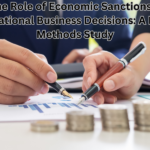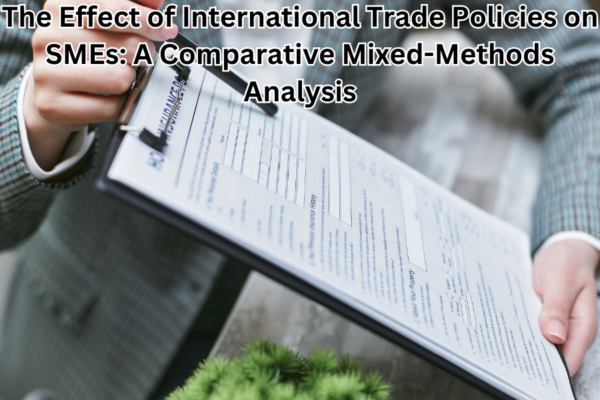Description
The Effect of International Trade Policies on SMEs: A Comparative Mixed-Methods Analysis
Abstract
This study focuses on how worldwide trade strategies effectively influence small and medium-sized enterprises (SMEs). SMEs are vital to the worldwide economy. It is critical to comprehend what exchange arrangements mean for their capacity all around the world. Generally this study aims to break down the opportunities and obstacles that trade policies present for the expansion of SMEs. For politicians and business pioneers, it expects to give helpful data. The effect of exchange guidelines, tariffs, and international agreements on SMEs’ tasks is the primary emphasis of the review. Basically their development and market access will be analyzed.
The examination utilized a comparative mixed-methods approach. This approach joins quantitative and qualitative information. SMEs from different nations and areas will be studied for quantitative review. The effect of exchange duties, export guidelines, and free trade agreements will all be assessed in this study. For instance the review will look at what they mean for productivity, market reach, and overall execution. Generally this study will look at the SMEs working in various areas. As a result, this correlation will feature exchange strategy and industry contrasts. The qualitative part will incorporate contextual investigations and meetings. These will check out the experiences of SME owners and managers. They will talk about how they have dealt with global trade regulations. However the review will pinpoint significant difficulties and practical adaptation strategies. A more careful understanding will result from this mixed-approaches approach.
Therefore, this study will give thorough knowledge by incorporating qualitative and quantitative data. It will inspect what small and medium-sized undertakings are meant for by worldwide trade strategies. However the discoveries will prompt valuable suggestions. Policymakers and SMEs are the target audience for these recommendations. Moreover their goal will be to adjust international trade policy more readily to the demands of SMEs. An atmosphere that is more conducive to global trade will result from this. Finally, this study will help advance a more sophisticated comprehension of how trade policies affect SMEs globally. It will enable SMEs to prosper in the global economy.
Read more about the topic
The Role of SMEs in International Trade: Selected Aspects
Effect on SME’s Foreign Trade through E-Commerce and Countermeasures








Reviews
There are no reviews yet.